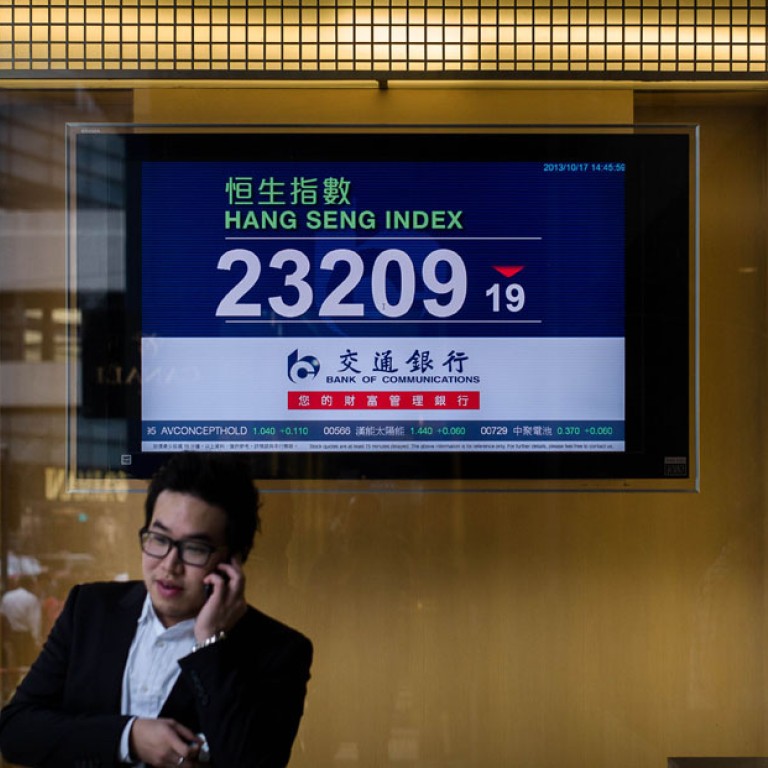
Property dims outlook for Hang Seng Index
The Hang Seng Index is expected to continue to lag benchmark indices in Europe and Japan next year due to the heavy weighting it gives to sluggishly performing property shares and expectations of a price correction in the world's most expensive housing market, market strategists said.
The Hang Seng Index is expected to continue to lag benchmark indices in Europe and Japan next year due to the heavy weighting it gives to sluggishly performing property shares and expectations of a price correction in the world's most expensive housing market, market strategists said.
"Chinese growth of around 7.5 per cent may not be enough to remove some of the challenges that have been built into asset prices in Hong Kong," Thomas Poullaouec, the head of strategy and research at State Street Global Advisors, said in Hong Kong yesterday.
"Property prices have been pushed too far and too fast and certainly have room for correction in 2014," he said, predicting single-digit returns for the local benchmark next year. The Hang Seng Index has been the worst-performing index in major developed markets this year.
Adrian Mowat, chief emerging market and Asian equity strategist at JP Morgan Chase, predicts that "a protracted bout of asset deflation" will hobble Hong Kong next year and suggests investors should avoid the city's property and banking sectors.
"Banks in Hong Kong proved resilient when property prices fell 70 per cent from 1997 to 2003," JP Morgan strategists, led by Mowat, said in research note. "Risk today is higher due to cross-border lending."
Capital values in the residential sector will remain under pressure and continue to see mild corrections, given the downside risks from looming interest rate increases and the potential for yet more market cooling measures from the government next year, Joseph Tsang, managing director of Jones Lang LaSalle Hong Kong, a major real estate services firm, said yesterday.
Meanwhile, concerns over the mainland's shadow banking sector would continue to be a key factor limiting returns for the Hang Seng Index next year, Poullaouec said. "The banking sector still remains a challenge because of NPL (non-performing loan) issues given the credit boom," he said.
Keith Wade, chief economist and strategist at Schroders, has also expressed scepticism about the mainland's planned transformation into an economy where domestic consumption plays a more important role, citing a lack of convincing stimulus measures to boost the services sector and private spending.
A member of Schroders' global asset allocation committee, Wade sees shadow banking as the biggest risk on the mainland.


